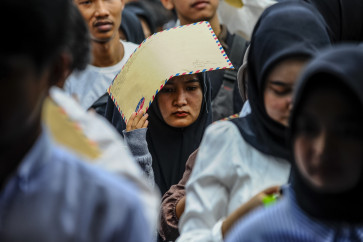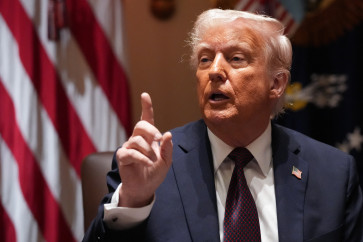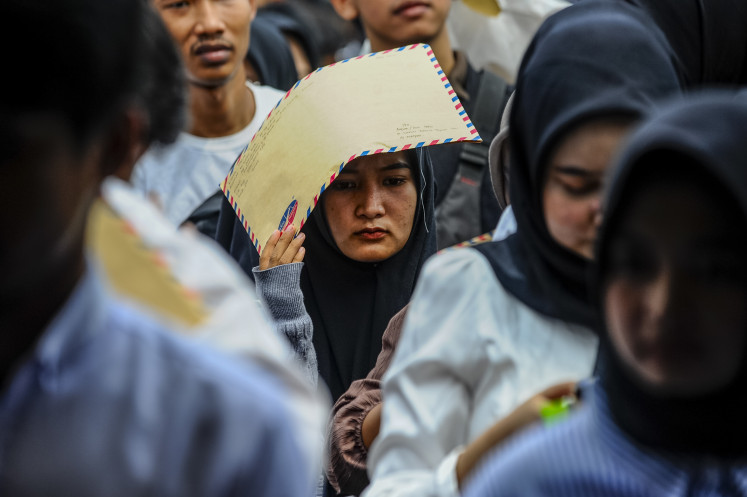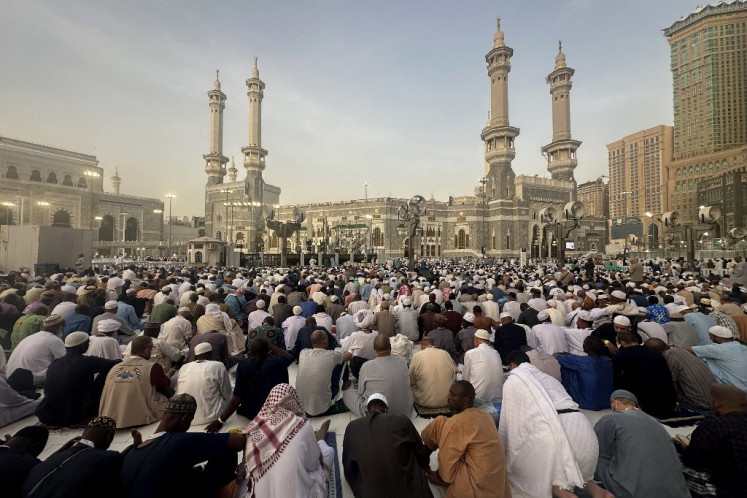Pertamina drops Aramco from refinery projects
State-owned oil and gas firm Pertamina has decided to single-handedly manage the upgrade of Balongan oil refinery in West Java and Dumai refinery in Riau, without the potential participation of Saudi Aramco, the world’s biggest crude oil producer, in the projects
Change text size
Gift Premium Articles
to Anyone

S
tate-owned oil and gas firm Pertamina has decided to single-handedly manage the upgrade of Balongan oil refinery in West Java and Dumai refinery in Riau, without the potential participation of Saudi Aramco, the world’s biggest crude oil producer, in the projects.
Pertamina had signed a memorandum of understanding (MoU) in December 2014 with Saudi Aramco to upgrade three of its refineries in Dumai, Balongan and Cilacap in Central Java. Each of the upgrades was estimated to cost from around US$5 billion to $6 billion.
However, Pertamina and Saudi Aramco have so far only proceeded with the Cilacap refinery, marked by the signing of a joint venture agreement (JVA) on Dec. 22, 2016.
Pertamina processing director Rachmad Hardadi said on Monday that Pertamina had decided to take on the upgrades in Balongan and Dumai refineries due to problems regarding the feedstock supply chain.
The Balikpapan refinery in East Kalimantan, which is being upgraded, has long supplied its excess of low fuel waxy residue (LFWR) to the Balongan refinery to be used as petrochemical feedstock, Rachmad said. Once the Balikpapan refinery is upgraded, it will require all the LFWR it has, hence creating lack of feedstock for the Balongan facility.
“Therefore, we need to find a way to make the Balongan refinery self-sufficient without having to rely on supplies from Balikpapan. Otherwise, the Balongan refinery will only operate at a 65 percent capacity, while the best practice for a refinery is at least 70 percent. Below that figure, the machinery will be badly affected,” he said.
Rachmat claimed Saudi Aramco had also supported Pertamina’s decision as the latter wanted to give rooom for the company to accelerate the upgrade of Balongan refinery.
“After we explained the problem, Saudi Aramco agreed and understood the problems we face at the moment.”
The Balikpapan refinery is expected to be fully operational by 2019 with a production capacity of 360,000 barrels of oil per day (bopd), up from the current 260,000 bopd.
To make the Balongan facility self-sufficient, Pertamina plans to develop an additional crude distillation unit (CDU) and gasoline treater in the refinery’s first upgrade phase, which is estimated to cost around $1.2 billion, far below its previous estimate in December 2016 of around $2.7 billion. The Balongan refinery is then expected to produce 240,000 bopd, up from the current 125,000 bopd, following its completion in 2023.
“It’s true that now Pertamina fully owns the Balongan refinery project. However, we will open the opportunity to team up with other parties in the form of a project-financing scheme,” Rachmad said.
Late last year, Pertamina president director Dwi Soetjipto also said the company had completed an open-access project for the Dumai refinery, slated for completion in 2024, so that the facility could get feedstock from various sources.
“That’s why we have to change the scenarios for these two projects [Balongan and Dumai refinery upgrades],” Dwi said.
Under its Refinery Development Master Plan (RDMP), Pertamina plans to upgrade four existing refineries and build two new facilities in an effort to boost its refined oil production capacity to 2.6 million bopd by 2030. At present, Indonesia’s refineries are only capable of producing around 830,000 bopd, a little over half of the current refined fuel demand.
Meanwhile, Pertamina has also started the licensor selection process for the development of the Cilacap refinery upgrade along with Saudi Aramco and the new Tuban refinery in East Java with Russia’s state oil giant Rosneft. The selected licensors are expected to review and provide the technologies needed by the company for both refineries.









